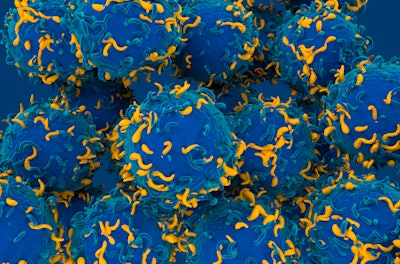
Engineered chimeric antigen receptor (CAR) T cells may unlock the secret to repressing signs and symptoms of allergic asthma. Researchers at Tsinghua University State Key Laboratory of Molecular Oncology in China made the discovery in mice in a recent study.
Their study, “A single infusion of engineered long-lived and multifunctional T cells confers durable remission of asthma in mice,” was published in Nature Immunology and details the decreased functionality of type 2, high-signature asthma interleukins. This type of asthma is typically associated with interleukin-5-driven eosinophilia, which causes increased mucus production.
In the study, researchers engineered both CAR T 5TIF and 4TIF cells to produce an IL-4 mutein that blocks IL-4 and IL-13 signaling. Mice with human-like asthma symptoms received a single infusion of the engineered cells.
After a year of monitoring, researchers discovered the mice retained the 5TIF and 4TIF cells, resulting in a decrease in asthma symptoms.
The research team, comprised of molecular oncologists, said CAR T cells are most often associated with cancer treatment. However, they said engineered cells may hold potential in the development of new treatments for other conditions, such as asthma.






















